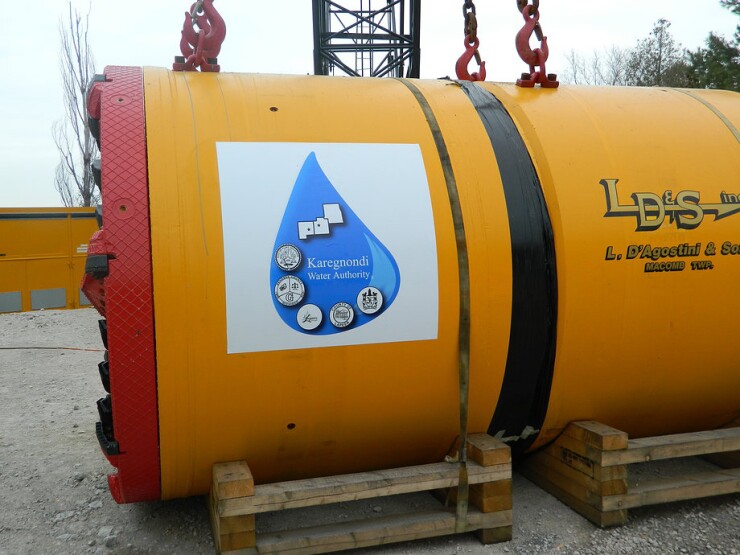DALLAS — The Karegnondi Water Authority is advancing plans to refinance short-term debt sold last year to cover remaining construction costs of its pipeline project with Flint's continued participation in the project still up in the air.
The Flint city council recently approved the KWA debt refinancing but it also has voted to extend the contract with its current water provider, the Great Lakes Water Authority, for another month as it continues to delay a vote on a long-term water plan that calls for the city to sell off its KWA rights and stick with GLWA long-term.

Mayor Karen Weaver shifted course earlier this year and is pushing a plan to stick with the GLWA as it recovers from its water contamination crisis that followed its decision to participate in the KWA project led by Genesee County. After its contract with Detroit supplied water ended, the city's emergency manager shifted to Flint River water as the city awaited completion of the new pipeline. Flint did not treat the water properly leading to the contamination crisis.
The GLWA is the successor of the Detroit Water and Sewarage Department, from which Flint had purchased water before its ill-fated decision to draw Flint River water while waiting for the Karegnondi pipeline.
Genesee County plans to refinance up to $79 million of bonds prior to May 2018. Deputy Drain Commissioner Kevin Sylvester said that getting the appropriate approvals now will allow the county to take advantage of the most favorable market conditions possible. “This long-planned refinancing is being done prior to May 1st of next year, in order to avoid increased costs associated with the original two-year borrowing,” Sylvester said. “Genesee County and Flint will both avoid these costs, by doing the refinancing during the above time period. Both entities have recognized that fact, as evidenced by Flint's resolution approval last week.”
JPMorgan is the lead underwriter on the refinancing. The plan must now be approved by Flint’s Receivership Transition Advisory Board before it moves to the Genesee County Board of Commissioners.
The Series 2016 Bonds were issued as short-term obligations to provide interim financing for the costs of completing the KWA System. The refunding is being undertaken in order to establish permanent long-term financing for the capital costs of the system, the county said.
On Wednesday, the Flint council voted to extend the water contract with GLWA for another month but didn’t make a decision on a long-term water contract.
Flint was preparing to shift to KWA supplied water in 2019 with plans to make much needed upgrades to its treatment plant to meet federal standards. In April, Weaver dropped the plan to make the switch to the bond-financed pipeline and recommended the city continue to purchase water from GLWA for 30 years. The contract would result in about $9 million in savings because it would lock in a more favorable rate with GLWA and address the $7 million in annual debt service payments the city is currently obligated to pay.
Under Weaver’s plan the city would recoup the roughly $7 million in annual debt service by transferring its KWA water rights to GLWA. Flint pledged to repay about 34% of the $220 million of the 2014 bond issue that is financing construction of the authority’s 63-mile pipeline led by Genesee County. The city’s bond commitment is estimated at $7 million per year, for the next 28 years. If Flint doesn't make its bond payment, Genesee County is on the hook to take over the city's debt, because the county pledged its full faith and credit to the project.
Weaver said sticking with GLWA-supplied and treated water is more affordable and avoids the risk of another supply shift. Switching to long term contract with GLWA would result in a $2.4 million savings because GLWA would charge a more favorable rate that isn’t available under the current short term contract the city negotiated with the water provider.
Flint’s city council has delayed the vote because it wants more time to look at the terms of the longer term water contract and, if required, explore other options.
The DEQ sued Flint in June over its inaction in choosing a long term water contract. The state seeks a declaration that the city council's failure to act is a violation of the Safe Drinking Water Act and wants the city to enter into the long-term agreement with GLWA.





